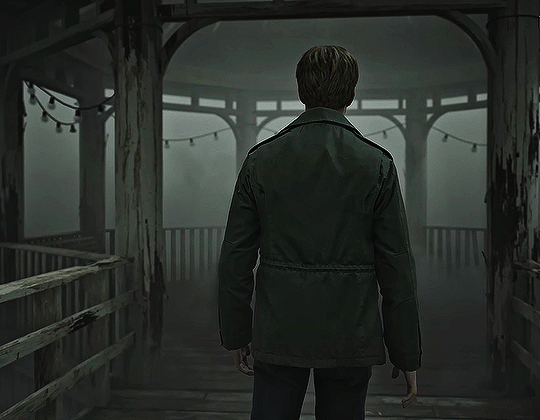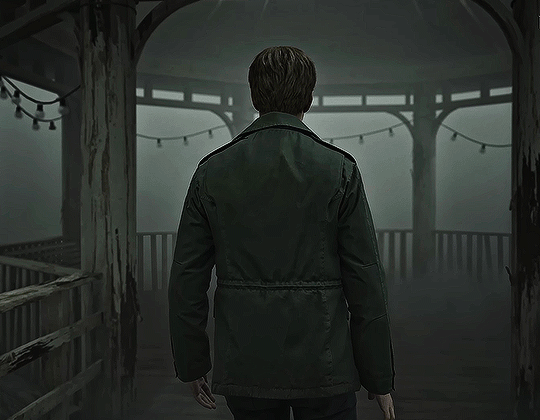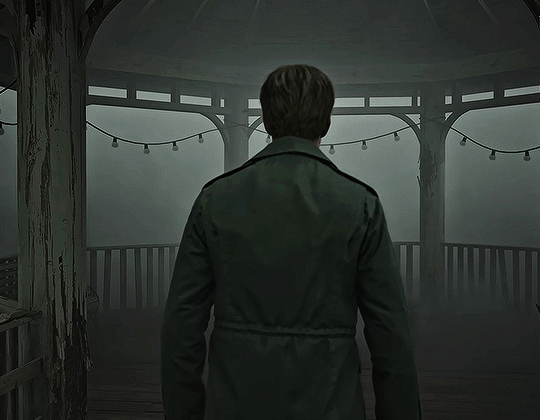#series: silent
Explore tagged Tumblr posts
Text
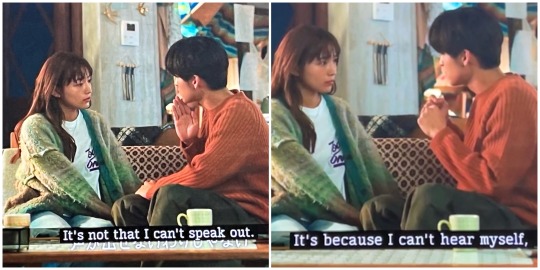



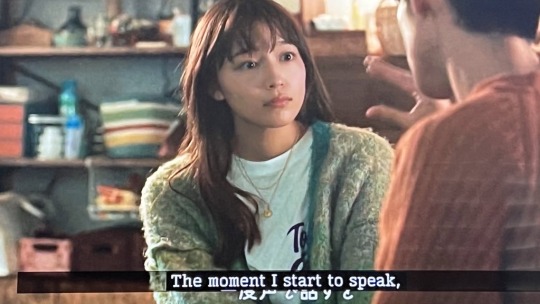





𝐒𝐢𝐥𝐞𝐧𝐭 (2022)
26 notes
·
View notes
Text
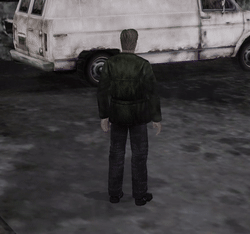
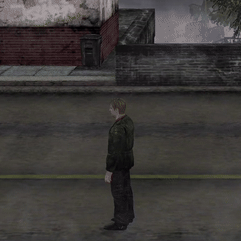
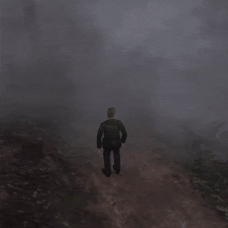

sliding hill 2 (cheatengine)
#guess who just got cheat engine#sh2#silent hill 2#silent hill series#james sunderland#silent hill#gif#my footage#tw blood
23K notes
·
View notes
Text


Drawing James doing faces: my newest hobby
#silent hill#silent hill 2#silent hill 2 remake#james sunderland#sh2#sh2 remake#silent hill series#fanart#silent hill fanart#shitpost#video games#artwork#digital art#art#artists on tumblr#my art#illustration#drawings#silent hill shitpost#silent hill art#sketch#sketches
7K notes
·
View notes
Text








Playstation 2 Horror Games Advertising
#silent hill#silent hill 2#silent hill 3#silent hill series#サイレントヒル#obscure#obscure 2#obscure game#rule of rose#ルールオブローズ#clock tower#clock tower 3#クロックタワー#クロックタワー3#haunting ground#demento#デメント#fatal frame#project zero#project 0#零 zero#resident evil#resident evil 4#biohazard#biohazard 4#バイオハザード#バイオハザード 4#playstation 2#survival horror#horror games
6K notes
·
View notes
Text
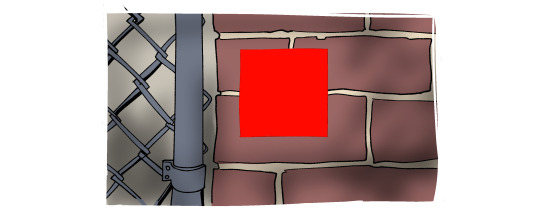
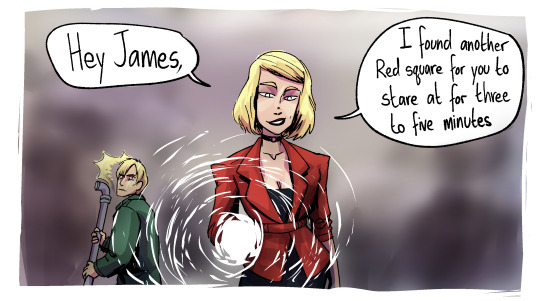
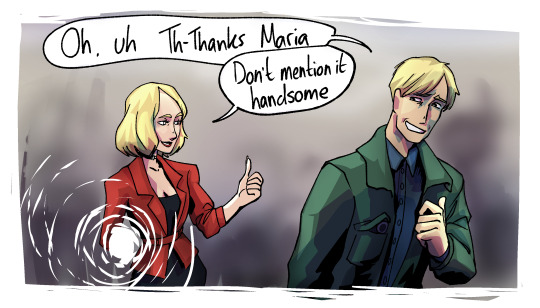
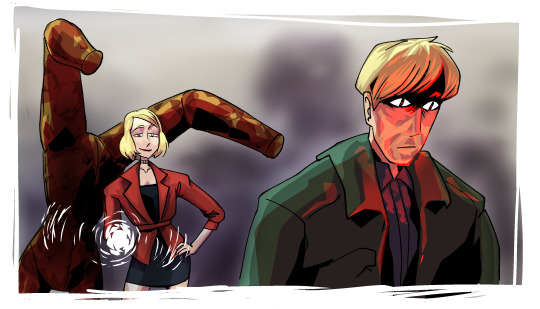
She's so helpful in the remake isn't she?
#lemonspades#my art#silent hill#silent hill 2#silent hill 2 remake#silent hill 2 remastered#james sunderland#maria#maria silent hill#sh2#sh2 maria#silent hill remake#mary sunderland#silent hill leg monsters#silent hill series#we watched gab play it#there's a line where Maria comments on how james spaces out durring saving#a fun little meta jab it feels like the town is playing with XD#lol it would have been funny if she started “helping” especially since this James is so UNCOMFORTABLE XD#Uncomfortable james
3K notes
·
View notes
Text
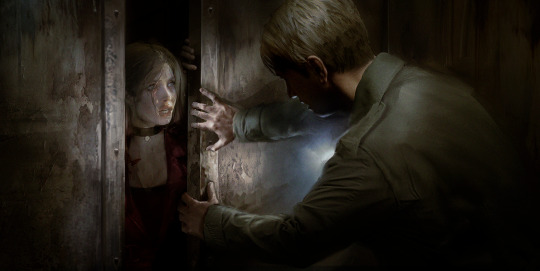




Some of my favorite shots from the SH2R artbook
#silent hill 2#silent hill 2 remake#sh2#sh2r#maria sh2#james sunderland#maria silent hill#silent hill 2 artbook#sh2 remake#sh2 james#sh2r spoilers#silent hill maria#art book#sh2 art#sh2 artbook#video game#video game art#artbook#i loveee how these capture light n shit#good fuckin good#also love maria in the first one ajkdbfgbjksdfg#fav#azza txt#silent hill#silent hill series
1K notes
·
View notes
Text
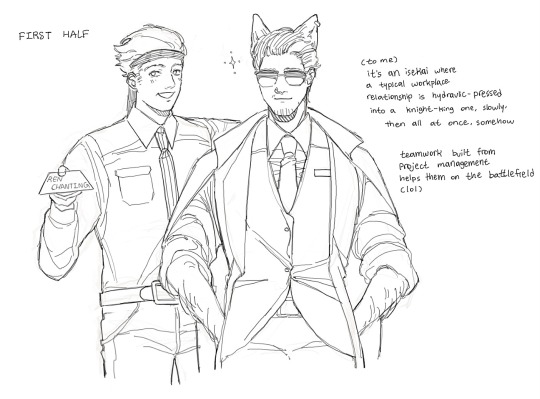
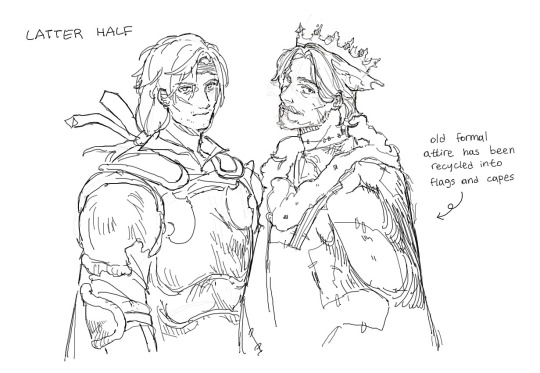
heyyy I watched the thing
#I think it’s funny if they won as a reward both would get to go back to the corporate world and ren would present the shittiest power point#imagineable and the whole room is silent except for martyn going “FANTASTIC WORK MY LIEGE INCREDIBLE#something something corporate bureaucracy prepared them for this yes but also they slipped into those roles wayyy too easily#third life#inthelittlewood#rendog#mcyt#mcyt fanart#life series#trafficblr#third life fanart#blood tw
3K notes
·
View notes
Text

Somehow I feel I'm not supposed to leave this place...
Lisa Garland - Silent Hill
#my art#fanart#my artwork#brazilian artists#silent hill#lisa garland#silent hill series#silent hill fanart#silent hill 1#silent hill lisa#harry mason#heather mason
721 notes
·
View notes
Text
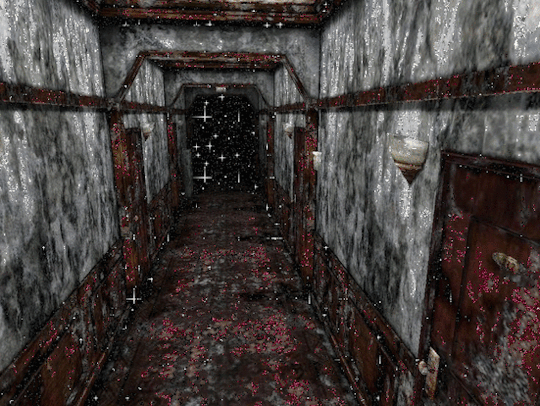
#romanticwrld#silent hill 2#silent hill#silent hill series#glittercore#my edit#creepycore#retrocore#liminalcore#oddcore#horrorcore#liminal reality#liminal spaces#glitter gif#black glitter gif#survival horror#horror games#ps2#00s#2000s
13K notes
·
View notes
Text




Silent Hill (1999)
#silent hill#horror series#survival horror#horror aesthetic#silent hill aesthetic#survival horror games#video games#gaming#supernatural#paranormal#psychological horror#gaming gif#horror games#video game#ps1 nostalgia#ps1 aesthetic#ps1#playstation#retro gaming
593 notes
·
View notes
Text

James Sunderland from Silent Hill 2
490 notes
·
View notes
Text






𝐒𝐢𝐥𝐞𝐧𝐭 (2022)
21 notes
·
View notes
Text

RED PYRAMID THING
SH2 letsgooooo
461 notes
·
View notes
Text


my cringe thoughts won my bad--
#I'D EMPTY MY WHOLE WALLET FOR THIS MF FR#silent hill#silent hill 2#silent hill 2 remake#sh2#sh2 remake#maria silent hill#maria sh2#james sunderland#fanart#silent hill fanart#shitpost#video games#silent hill series#artwork#silent hill comic#comic art#comics#comic#silent hill shitpost#artists on tumblr#art#my art#digital art#illustration#drawings#meme#memes#dank memes#memedaddy
4K notes
·
View notes
Text
Against Lore

For the rest of May, my bestselling solarpunk utopian novel THE LOST CAUSE (2023) is available as a $2.99, DRM-free ebook!

One of my favorite nuggets of writing advice comes from James D Macdonald. Jim, a Navy vet with an encylopedic knowledge of gun lore, explained to a group of non-gun people how to write guns without getting derided by other gun people: "just add the word 'modified.'"
As in, "Her modified AR-15 kicked against her shoulder as she squeezed the trigger, but she held it steady on the car door, watching it disintegrate in a spatter of bullet-holes."
Jim's big idea was that gun people couldn't help but chew away at the verisimilitude of your fictional guns, their brains would automatically latch onto them and try to find the errors. But the word "modified" hijacked that impulse and turned it to the writer's advantage: a gun person's imagination gnaws at that word "modified," spinning up the cleverest possible explanation for how the gun in question could behave as depicted.
In other words, the gun person's impulse to one-up the writer by demonstrating their superior knowledge becomes an impulse to impart that superior knowledge to the writer. "Modified" puts the expert and the bullshitter on the same team, and conscripts the expert into fleshing out the bullshitter's lies.
Yes, writing is lying. Storytelling is genuinely weird. A storyteller who has successfully captured the audience has done so by convincing their hindbrains to care about the tribulations of imaginary people. These are people whose suffering, by definition, do not matter. Imaginary things didn't happen, so they can't matter. The deaths of Romeo and Juliet were less tragic than the death of the yogurt you had for breakfast. That yogurt was alive and now it's dead, whereas R&J never lived, never died, and don't matter:
https://locusmag.com/2014/11/cory-doctorow-stories-are-a-fuggly-hack/
Hijacking a stranger's empathic response is intrinsically adversarial. While storytelling is a benign activity, its underlying mechanic is extremely dangerous. Getting us to care about things that don't matter is how novels and movies work, but it's also how cults and cons work.
Cult leaders and con-artists know that they're engaged in mind-to-mind combat, and they make liberal use of Jim's hack of leaving blank spots for the mark to fill in. Think of Qanon drops: the mystical nonsense was just close enough to sensical that a vulnerable audience was compelled to try and untangle them, and ended up imparting more meaning to them than the hustler who posted them ever could have dreamt up.
Same with cons – there's a great scene in the Leverage: Redemption heist show where an experienced con-artist explains to a novice that the most convincing hustle is the one where you wait for the mark to tell you what they think you're doing, then run with it (scambaiters and other skeptics will recognize this as a relative of the "cold reading," where a "psychic" uses your own confirmations to flesh out their predictions).
As Douglas Adams put it:
A towel has immense psychological value. For some reason, if a strag (strag: non-hitch hiker) discovers that a hitch hiker has his towel with him, he will automatically assume that he is also in possession of a toothbrush, face flannel, soap, tin of biscuits, flask, compass, map, ball of string, gnat spray, wet weather gear, space suit etc., etc. Furthermore, the strag will then happily lend the hitch hiker any of these or a dozen other items that the hitch hiker might accidentally have "lost". What the strag will think is that any man who can hitch the length and breadth of the galaxy, rough it, slum it, struggle against terrible odds, win through, and still knows where his towel is is clearly a man to be reckoned with.
Magicians know this one, too. The point of a sleight is to misdirect the audience's attention, and use that moment of misattention to trick them, vanishing, stashing or producing something. The mark's mind is caught in a pleasurable agony: something seemingly impossible just happened. The mind splits into two parts, one of which insists that the impossible just happened, the other insisting that the impossible can't happen.
You know you've done it right if the audience says, "Do that again!" And that's the one thing you must not do. So long as you don't repeat the trick, the audience's imagination will chew on it endlessly, coming up with incredibly clever things that you must have done (a clever conjurer will know several ways to produce the same effect and will "do it again" by reproducing the effect via different means, which exponentially increases the audience's automatic imputation of clever methods to the performer).
Not for nothing, Jim Macdonald advises his writing students to study Magic and Showmanship, a classic text for aspiring conjurers:
https://memex.craphound.com/2007/11/13/magic-and-showmanship-classic-book-about-conjuring-has-many-lessons-for-writers/
There's a version of this in comedy, too. The scholarship of humor is clear on this: comedy comes from surprise. The audience knows they're about to be surprised when the punchline lands, and their mind is furiously trying to defuse the comedian's bomb before it detonates, cycling through potential punchlines of their own. This ramps up the suspense and the tension, so when the comedian does drop the punchline, the tension is released in a whoosh of laughter.
Your mind wants the tension to be resolved ASAP, but the pleasure comes from having that desire thwarted. Comedy – like most performance – has an element of authoritarianism. You don't give the audience what it wants, you give it what it needs.
Same goes for TTRPGs: the game master's role is to deny the players the victories and treasure they want, until they can't take it anymore, and then deliver it. That's the definition of an epic game. It's one of the durable advantages of human GMs over video game back-ends: they can ramp up the epicness by "cheating" on the play, giving the players the chance to squeak out improbable victories at the last possible second:
https://wilwheaton.typepad.com/wwdnbackup/2009/03/behind-the-screen.html
This is so effective that even crude approximations of it can turn video-games into cult hits – like Left4Dead, whose "Director" back-end would notice when the players were about to get destroyed and then substantially ramped up the chances of finding an amazing weapon – the chance would still be low overall, but there would be enough moments when the player got exactly what they'd been praying for, at the last possible instant, that it would feel amazing:
https://left4dead.fandom.com/wiki/The_Director#Special_Infected
Critically, Left4Dead's Director didn't do this every time. As any showman knows, the key to a great performance is "Always leave 'em wanting more." The musician's successful finale depends on doing every encore the audience demands, except the last one, so the crowd leaves with one tantalyzing and imaginary song playing in their minds, a performance better than any the musicians themselves could have delivered. Like the gun person who comes up with a cooler mod than the writer ever could, like the magic show attendee who comes up with a more elaborate explanation for the sleight than the conjurer could ever pull off, like the comedy club attendee whose imagination anticipates a surprise that grows larger the longer the joke goes on, the successful performance is an adversarial act of cooperation where the audience willingly and unwillingly cooperates with the performer to deny them the thing that they think they need, and deliver the thing they actually need.
This is my biggest problem with the notion that someday LLMs will get good enough at storytelling to give us the tales we demand, without having to suffer through a storyteller's sadistic denial of the resolutions we crave. When I'm reading a mystery, I want to turn to the last page and find out whodunnit, but I know that doing so will ruin the story. Telling the storyteller how the story should go is like trying to tickle yourself.
Like being tickled, experiencing only fun if the tickler respects your boundaries – but, like being tickled, there's always a part where you're squirming away, but you don't want it to stop. An AI storyteller that gives you exactly what you want is like a dungeon master who declares that every sword-swing kills the monster, and every treasure chest is full of epic items and platinum pieces. Yes, that's what you want, but if you get it, what's the point?
Seen in this light, performance is a kind of sado-masochism, where the performer delights in denying something to the audience, who, in turn, delights in the denial. Don't give the audience what they want, give them what they need.
What your audience needs is their own imagination. Decades ago, I was a freelance copywriter producing sales materials for Alias/Wavefront, a then-leading CGI firm that was inventing all kinds of never-seen VFX that would blow people away. One of the engineers I worked with told me something I never forgot: "Your imagination has more polygons than anything you can create with our software." He was talking about why it was critical to have some of the action happen in the shadows.
All of this is why series tend to go downhill. The first volume in any series leaves so much to the imagination. The map of the world is barely fleshed out, the characters' biographies are full of blank spots, the mechanics of the artifacts and the politics of the land are all just detailed enough that your mind automatically ascribes a level of detail to them, without knowing what that detail is.
This is the moment at which everything seems very clever, because your mind is just churning with all the different bits of elaborate lore that will fill in those lacunae and make them all fit together.
SPOILER ALERT: I'm about to give some spoilers for Furiosa.
.
.
.
.
.
.
.
.
FURIOSA SPOILERS AHEAD!
Last night, we went to see Furiosa, the latest Mad Max movie, a prequel to 2015's Fury Road, which is one of the greatest movies ever made. Like most prequels, Furiosa functions as a lore-delivery vehicle, and as such, it's nowhere near as good as Fury Road.
Fury Road hints as so much worldbuilding. We learn about the three fortresses of the wasteland (the Citadel, the Bullet Farm, and Gastown) but we only see one (The Citadel). We learn that these three cities have a symbiotic relationship with one another, defined by a complex politics that is just barely stable. We meet Furiosa herself, and learn something of her biography – that she had been stolen from the Green Place, that she had suffered an arm amputation.
All of this is left for us to fill in, and for a decade, my hindbrain has been chewing on all of that, coming up with cool ways it could all fit together. I yearned to know the "real" explanation, but it was always unlikely that this real explanation would be as enjoyable as my own partial, ever-unfinished headcanon.
Furiosa is a great movie, but its worst parts are the canonical lore it settles. Partly, that's because some of that lore is just stupid. Why is the Bullet Farm an open-pit mine? I mean, it's visually amazing, but what does that have to do with making bullets? Sometimes, it's because the lore is banal – the solarpunk Green Place is a million times less cool than I had imagined it. Sometimes, it's because the lore is banal and stupid: the scenes where Furiosa's arm is crushed, then severed, then replaced, are both rushed and quasi-miraculous:
https://www.themarysue.com/how-does-furiosa-lose-her-arm/
But even if the lore had been good – not stupid, not banal – the best they could have hoped for was for the lore to be tidy. If it were surprising, it would seem contrived. A story whose loose ends have been tidily snipped away seems like it would be immensely satisfying, but it's not satisfying – it's just resolved. Like the band performing every encore you demand, until you no longer want to hear the band anymore – the feeling as you leave the hall isn't satisfaction, it's exhaustion.
So long as some key question remains unresolved, you're still wanting more. So long as the map has blank spots, your hindbrain will impute clever and exciting mysteries, tantalyzingly teetering on the edge of explicability, to the story.
Lore is always better as something to anticipate than it is to receive. The fans demand lore, but it should be doled out sparingly. Always leave 'em wanting more.

If you'd like an essay-formatted version of this post to read or share, here's a link to it on pluralistic.net, my surveillance-free, ad-free, tracker-free blog:
https://pluralistic.net/2024/05/27/cmon-do-it-again/#better_to_remain_silent_and_be_thought_a_fool_than_to_speak_and_remove_all_doubt
#pluralistic#writing#lore#series#science fiction#the elaborations of a bad liar#always leave em wanting more#james d mcdonald#guns#pilkunnussija#craft#Silmarillion#sf#Better to Remain Silent and Be Thought a Fool than to Speak and Remove All Doubt#magic tricks#conjuring#narrative#mad max#furiosa
1K notes
·
View notes
